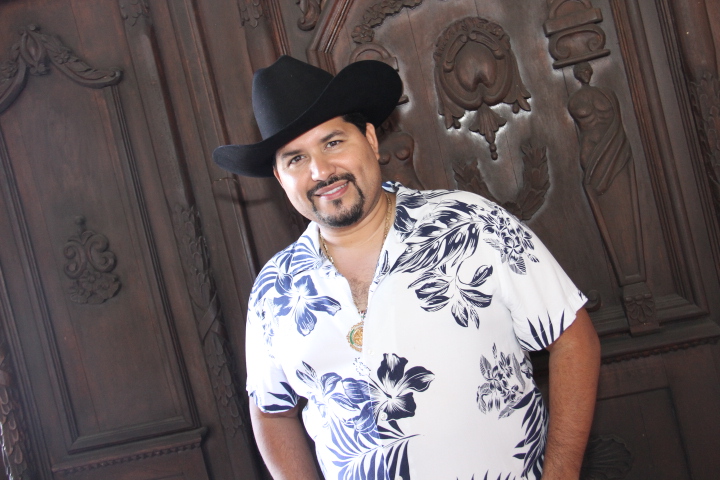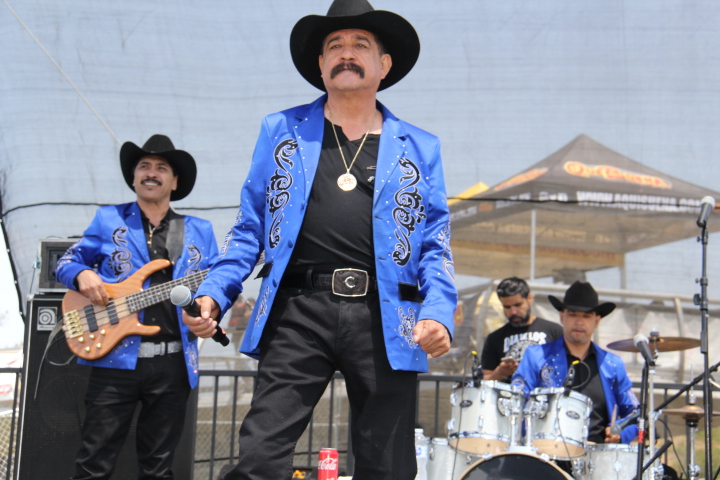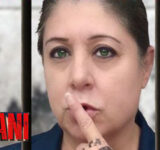“I was born in Los Angeles, my father is from Jalisco, Mexico, and my mother from Michuacan, [MX], I however lived a short time as a kid [both] in Jalisco, and as an adolescent also in Michuacan. Upon my return to Los Angeles [to the Huntington Park area] my parents had problems with me in school [at the young age of four] since all I wanted to do in class was sing and it was [and I became] a distraction to the other kids. One of my teachers finally got me into a performance group at Miles Ave. Elementary School [in Huntington Park],” recounts Roberto Hernandez, who is now known [artistically] in the Popular Mexican Music realm as El RH, short for the first initials of his first and last name. “A few blocks from where I lived [at the time] in Huntington Park there was a Tianguis, kind of like a supermarket and they use to have a Mariachi play there and sing every Sunday, so when I was six [I remember] riding my little bike there and had asked the Mariachi if they would let me sing?, they asked me what song I wanted to sing? — so I told them “La Mochila Azul” it was a famous classic song sung by Pedrito Fernandez at the time, so when I finished singing I recall that a crowd had gathered and people started to clap and give me money. I took the money but at the same time I felt scared because my parents were kind of strict so I thought that my father would think the wrong thing if I came home with the money. I eventually saw a man pushing a cart selling paletas [ice cream] and bought my little friends ice cream as a way of getting rid of the money before coming home.”

Hernandez’s desire to sing kept growing which eventually prompted his parents [at age eight] to pay for a recording session and have their son record an album with Mariachi.
“During that recording session I recorded a song [recorded] by Pepe Aguilar penned by Pascual Barraza titled “Pidele Al Cielo,” it was a popular song at that time and I just adapted it to my voice. I eventually kept singing and recording and eventually stopped singing for like ten or twelve years [maybe a little longer] because I went back to school [college] and became an architect, I actually got my degree from California State Polytechnic University [known as Cal Poly Pomona],” explained Hernandez, who also detailed sudden unplanned events that led him back to his “passion and love” which is singing and music. “I went on a business meeting to Reno, Nevada. When I was done with the business [meeting] and as I drove I turned on the radio in my truck and heard an announcement that Chuy Chavez and Los Originales De San Juan were going to be performing at a club there in Reno that night. So I thought to myself this is my chance to reconnect with them. Chuy [Chavez] and I “go back” to when I was eight years old, to a time he wasn’t famous yet. Chuy is from Jalisco but he’s an idol in Michuacan, he knows my career, he knows my family and so forth, and I know his, we go back many years.”

Hernandez eventually Googled the Millennium Club [in Reno] where Los Originales would be playing that night and explained what transpired next and [described] how his reconnection with Chuy [of Los Originales] who he considers to be like his uncle, “his Godfather,” and someone very [very] special in his life came about, “I eventually drove there to the club and found their tour bus and spoke to Poncho who plays the drums for Los Originales. I told him who I was [I’m Robertito Hernandez EL RH] and he kind of didn’t remember who I was [at first], then he said oh’ yeah I remember and took me to go reconnect [and speak] with Chuy [Los Originales de San Juan’s frontman]. He was glad, surprised, and very excited to see me. During our conversation he eventually asked about the music and I explained how it had broken my heart to have to walk away from [and abandon] the music [which is my passion] for a couple of years to attend college and the university and eventually become an architect, so then he said I’ll tell you what – [if you’d like] I’ll help you return to the music and I will have Los Originales play and do all the arrangements, and help you record new material [in the recording studio], and back you up, so in short — that “gave birth” to my return [to the music and singing] and part of what came out of it was the recording of the classic song [originally sung] by Miguel y Miguel titled “El Ayudante” [Spanish for “The Helper”], this was one of seven more songs Los Originales [de San Juan] played on and graciously help me record.”





